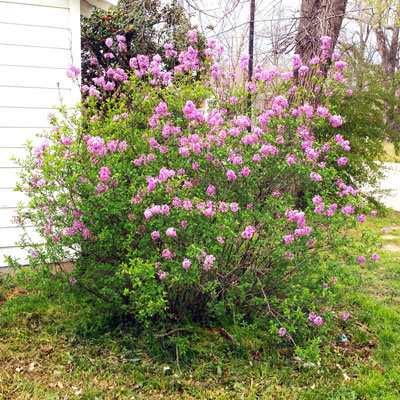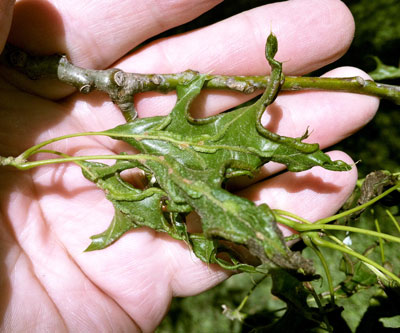Why Plants Behave Like They Do
My career has found me advising people regarding plants for 55 years, and for most of that time I’ve been trying to explain why plants don’t do what we want or expect them to do.
Some time ago I decided it’s like explaining teenagers and cats. Some things just don’t get explained. Here are examples. (But I’ll try to explain them.)

• “I’ve grown lilacs and peonies in other parts of the country, but I can’t grow them in Texas. What is the difference?”
That’s the easy question. You probably had much cooler climates in those other areas. Those are both plants that fade in the Texas heat. That’s why it’s critical that you do your homework first, then buy from a reputable full-time nursery professional whose advice will be reliable and applicable to your locale. Gardening is like driving. The farther you get away from home, the less you know about what you’re doing. Everything changes.
• “Why does one plant in my landscape grow so slowly, when another one of the same species right across the sidewalk thrives?”
As a parent, grandparent and now even a great-grandparent, also a human observer with more than a few years under my belt, that’s the same way it works for all living beings. Somebody catches the cold, and somebody right next to them does not. Individuals (plants or animals) just don’t always behave the same.
In the case of these two plants, they might have been from different nurseries, and they could have found their way to the landscape having faced different challenges. The slower one might have gotten too dry and never recovered. It might have been root-bound at the time it was planted with no corrective measures taken to help it become established. The vigorous one might have had better and deeper soil or better irrigation. There could be subtle differences in the amount of lighting the two plants receive. The list could go on and on.

• “Why does one oak tree have galls, while the one touching it does not?”
Genetic susceptibility has to be a key factor here. Some people are more prone to high blood pressure or baldness – or to the aforementioned cold, while a sibling is not.
Oaks are pollinated by wind and are grown from acorns, so the offspring will all be genetically different from the mother tree and from one another. Some oak seedlings will show up with galls, while many will not. Some live oaks put up root sprouts (not good!), while others do not. These are just two of the thousands of everyday genetic variations in the plants that we grow.
• “Why does my neighbor’s garden grow and produce so much better than mine?”
OK. You lobbed that pitch to me. Again, there could be a score of possible reasons. Sun, soil, wild armadillos, forgot to pay the water bill, or maybe the neighbor is just a better gardener.
Comparing your garden to one next door can be frustrating and embarrassing. Start with a small garden plot. Do your homework and know how you need to prepare the soil. Plant at the right time and nurture the developing plants.
Watch what the neighbor is doing, and don’t be afraid to ask questions. Gardening is a hobby of sharing. Compliments work wonders. It will do you both good.
